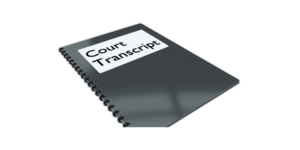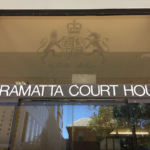Access to NSW Court Transcripts to Be Digitised

Until now, the process of ordering court transcripts and other documents has been slow and cumbersome.
But a new initiative launched by the New South Wales Government means that as of next year, court documents and transcripts will be available online.
The new online service, launched by NSW Attorney-General Mark Speakman, is part of an ongoing programme to implement technology to streamline and modernise services and improve efficiencies.
Since the start of the Covid-19 pandemic, courts have also been using technology such as videolink and telephone conferencing to reduce the amount of foot traffic in courthouses, simply to stop the spread of the virus.
A $54 million investment over three years has been made in digitising court files and bringing more proceedings online.
‘Click and collect’
The new ‘click and collect’ service will be available in January 2022.
Anyone involved in a court case will be able to:
- Order a transcript;
- View progress of a transcript request;
- Access completed transcripts;
- Make payments online; and
- Receive notifications.
The transcript service has already been available as a trial to court registry and support staff for the past 18 months with about 20,000 transcript orders processed so far.
Traditionally, transcripts have had to be ordered from the particular court in which the case was heard, but the new service makes all NSW court transcripts and documents available via one single online portal.
Who can request transcripts?
All parties involved in the proceedings are entitled to obtain a copy of a transcript for a set fee; although it is possible to have these fees waived on hardship grounds, and for those on government assistance such as Legal Aid.
If you have a request for a court transcript and you were not directly involved in the case, perhaps you are a researcher or journalist for example, you can contact the court via email, or ask over the counter, in person, about transcripts.
The court or registrar will decide who else can obtain a copy of a transcript, depending on their reasons for requiring it, and their intended use of the information.
Use of transcripts and copyright
Copyright of the transcripts is owned by the State of NSW, and transcripts come with strict conditions which mean they cannot be copied, or used in any way without permission.
All formal criminal and civil court proceedings in New South Wales courts are recorded either in audio form or in shorthand and then official court transcripts are made from these recordings.
The transcripts are an important record of the judicial process and are often used by lawyers, judges or a court officer to refer to for sentencing and also appeal proceedings.
Recordings of court and tribunal proceedings are kept for 10 years and then destroyed.
However, all transcripts are considered State archives and are never destroyed.







